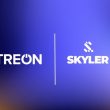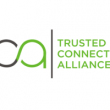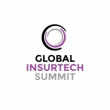

Horten Municipality in southern Norway, and local smart condition monitoring solution provider, 7Sense, have collaborated on a cellular Internet of Things (IoT)-based project designed to detect leaks in drinking water networks in the region. The solution is powered by Nordic Semiconductor’s nRF9160 low power module with integrated LTE-M/NB-IoT modem and GNSS, and the project is supported by the Norwegian Institute of Public Health.
April 10, 2025
Posted by: Marion Webber

Ayla Networks, a provider of smart home and Internet of Things (IoT) software platforms, has announced its partnership with Google Cloud to enhance scalability, reliability, security and innovation opportunities for Ayla’s global customers.
April 9, 2025
Posted by: Marion Webber

Vodafone has connected its 200 millionth Internet of Things (IoT) device, part of a secure worldwide network of smart devices and machines that monitor people’s health, protect endangered animals, thwart vehicle thefts and detect fires, floods and earthquakes.
April 8, 2025
Posted by: Marion Webber

In today’s fast-paced air cargo environment, keeping track of every unit load device (ULD) is critical for smooth operations. Every day, airlines contend with the challenge of displaced ULDs—industry estimates suggest that about 5% of ULDs are misplaced at any given time. It’s clear that the industry is in need of proven digitalisation solutions.
April 7, 2025
Posted by: Marion Webber

Treon and Skyler have announced a partnership to transform asset reliability management. The collaboration combines Treon’s Internet of Things (IoT)-powered solutions with Skyler’s comprehensive reliability services and artificial intelligence (AI) analytics for mechanical equipment, delivering full coverage across plants—from balance-of-plant systems to critical assets.
April 4, 2025
Posted by: Marion Webber

Trusted Connectivity Alliance (TCA) has released Version 3.4 of its eUICC Profile Package: Interoperable Format Technical Specification (Interoperable Profile Package Specification). The latest version includes updates to support full alignment with 3GPP Release 18 to enable advanced 5G functionality and secure authentication in 5G network slicing, as well as enabling the remote management of eSIM profiles on low-power and network-constrained devices. Additional updates and clarifications to promote security and interoperability have also been made.
April 3, 2025
Posted by: Marion Webber

PEAK3 Spectrum and ASUS IoT has announced a partnership that will integrate PEAK3’s Industrial ATSC 3.0 M.2 Receiver technology into ASUS Internet of Things (IoT)’s hardware platforms, creating new possibilities for smart cities and industrial automation.
(more…)
April 2, 2025
Posted by: Marion Webber

In the aftermath of the devastating Los Angeles wildfires estimated to cost more than $250 billion, Dryad Networks, a pioneer in ultra-early wildfire detection technology, has announced a demonstration of the world’s first fully functional drone prototype solution to autonomously detect, locate, monitor and eventually extinguish wildfires.
April 1, 2025
Posted by: Marion Webber

Deutsche Telekom and metr, a provider of smart building solutions, are digitalising over 120 heating systems in multifamily residences of Stadtsiedlung Heilbronn GmbH. metr’s manufacturer-independent Internet of Things (IoT) solution enables remote monitoring and fully automatic optimisation of the systems. Operating data is securely transmitted to the metr platform via Deutsche Telekom’s mobile connectivity, reducing energy consumption and CO2 emissions. Tenants of Stadtsiedlung Heilbronn benefit from lower heating costs, and operating processes become more efficient.
March 31, 2025
Posted by: Marion Webber

FinTech Global, a specialist research firm, is set to host the highly-anticipated Global InsurTech Summit on April 30, 2025, bringing the InsurTech greatest innovators together.
March 28, 2025
Posted by: Marion Webber